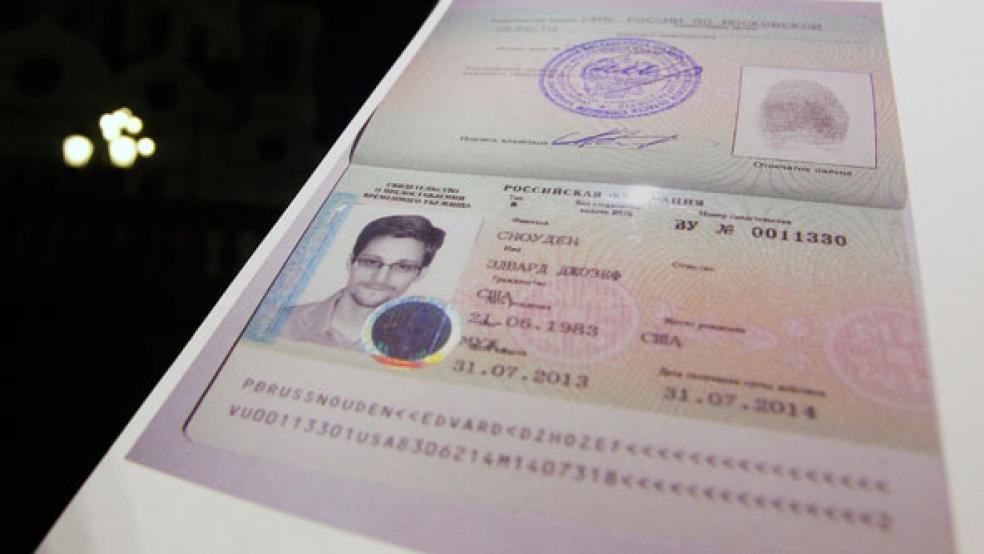On Thursday, NSA leaker Edward Snowden disappeared into the vast Russian unknown after the Kremlin granted him one-year temporary asylum.

Russia’s action drew immediate condemnation from U.S. officials, who warned that the action could undermine an already tenuous relationship between Russia and the United States. Some are even suggesting that the United States boycott the winter Olympics in Russia next year.
Snowden’s escape into Russia comes just days after Bradley Manning, the Army private that leaked thousands of pages of secret documents in Wikileaks, was found guilty of espionage. His sentencing hearing began Thursday.
Snowden and Manning are often mentioned in the same breath. Both swore an oath to protect federal secrets when they took their respective jobs. Both became disillusioned with the tactics being used by the American military and spy agencies. Both said that they leaked the secrets because they believed the world deserved to know.
Taken together, Snowden and Manning’s actions have helped define a new reality: In the digital world, all information – including our deepest and darkest secrets - is vulnerable.
All it takes is one person with access to our data to expose us to the world: One photo from a smart phone (Abu Ghraib), one tweet (Anthony Weiner), one digital video (Mitt Romney’s 47 percent)—that’s all it took to expose some of the most notorious and damaging images and comments that brought down politicians and institutions.
At the same time, new technology is allowing people to bypass traditional methods of purchase and consumption. In some cases, technology is rendering laws unenforceable. Even if Michael Bloomberg and other gun advocates were able to pass meaningful gun control legislation, the law could be easily ignored if you had a 3-D digital printer.
Welcome to the digital Wild West.
THE LONE WOLF AFFECT
Both Manning and Snowden have been portrayed in the media as expert hackers. But it’s just as likely that they simply had access to the information and downloaded it, as Manning did on a flash drive.
Snowden, a systems administrator with access to all information stored on a computer hard drive could have simply downloaded the NSA files.
Technology is also changing the way we produce and consume. The 3-d printer, for instance, is a device that can produce three-dimensional, functioning objects. Manufacturing companies have been using these machines to create widgets since the 1980s. But their potential is endless: medical researchers are now working to create human organs with the printers.
They can also be used to create weapons, theoretically arming terrorist cells or other nefarious actors.
This isn’t a fantasy: Defense Distributed, a group that plans to create a plastic gun, has already leaked schematics for that gun on their web site (the State Department demanded they take it down). Fox News recently obtained a Homeland Security Department memo warning, “Significant advances in three-dimensional (3D) printing capabilities, availability of free digital 3D printer files for firearms components, and difficulty regulating file sharing may present public safety risks from unqualified gun seekers who obtain or manufacture 3D printed guns.”
TECHNOLOGICAL DOWNSIDE
Modern technology has made our lives more efficient. It’s made data easier to collect, access and store. It’s fueling medical advances that could save thousands of lives. It’s an engine of economic growth.
But it’s also made us vulnerable in unexpected ways. Manning and Snowden have illustrated just how easy it is to make sensitive information public. It’s only a matter of time before a cynical worker in the private sector does the same thing.
U.S. laws are also playing catch-up to many technological advances. It remains to be seen if they can keep pace. But what is clear is this: in the digital Wild West, nothing is sacred, and no one - no person, no institution, no government, no military - can outsmart the o’s and ones.






